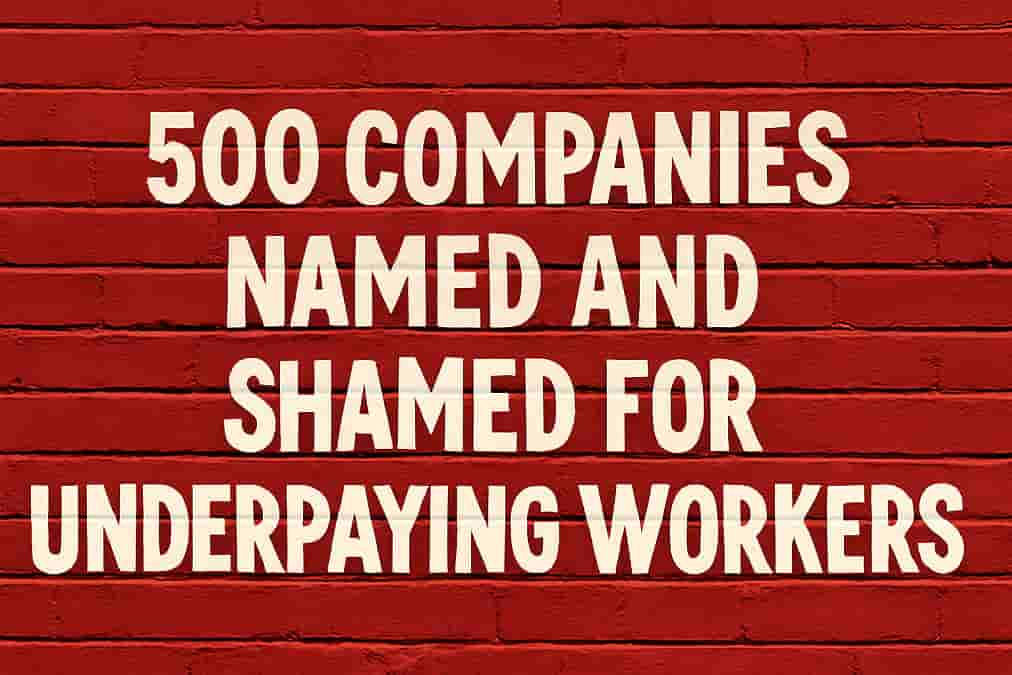In a striking move to uphold fairness and transparency in the workplace, the Government has publicly named 491 UK companies that have underpaid their employees, prompting a wave of repayments totalling millions of pounds owed to workers. According to official figures, around 42,000 workers have now been reimbursed for unpaid wages — a clear signal that accountability is returning to the forefront of British business practice.
Among the firms listed are some of the country’s most recognisable names, including Cineworld, Go Outdoors, Holland & Barrett, and Iceland. Collectively, these employers have been ordered to pay £10.2 million in fines for breaches of minimum wage legislation.
The Department for Trade and Business (DTB) confirmed that as much as £6 million has already been paid back to affected staff, marking one of the most significant wage recovery efforts in recent years.
Speaking on behalf of the Government, Business Secretary Peter Kyle reiterated the principle that every worker deserves “a fair day’s pay for a fair day’s work.” He continued, “This Government will not tolerate rogue employers who short-change their staff. Our Plan to Make Work Pay cracks down on those not playing by the rules, ensuring a level playing field where businesses pay what they owe and workers receive the boost they deserve.”
The move follows the announcement of the upcoming Employment Rights Bill, due to take effect in April 2026, which will create a Fair Work Agency with strengthened powers to investigate and penalise employers that fail to meet legal pay obligations. The reform is part of the Government’s “Plan to Make Work Pay,” set to benefit 15 million workers, representing half of the UK workforce.
Employment Rights Minister Kate Dearden echoed these sentiments, stating: “This Government is taking direct action to ensure workers get every penny they’ve earned. With our new Fair Work Agency and the forthcoming Employment Rights Bill, we are keeping our promise to make work pay again.”
The underpayment cases vary widely in nature, from historic payroll oversights to miscalculations linked to unpaid training or uniform costs. Retail chain Holland & Barrett, which failed to pay £153,079 to 2,551 workers, attributed the issue to “legacy practices” dating back to 2015–2021, such as unpaid training and time spent preparing for shifts. A company spokesperson said all arrears were repaid in 2022 and that the firm had “acted swiftly to upgrade processes and systems.”
Outdoor retailer Go Outdoors, fined for underpaying £240,105.62 to 2,058 workers, stated that its payment issues pre-dated its acquisition by JD Sports and were resolved following an HMRC review.
While many firms argue that administrative issues, rather than intent, caused the underpayments, the Government insists that ignorance of the law is no defence.
The national living wage currently stands at £12.21 per hour, up from £11.44 earlier this year, while younger workers aged 18–20 must receive at least £10, and apprentices £7.55. The Government emphasises that adherence to these rates is non-negotiable.
At The Workers Union we asked: UK workers got a pay rise back in April 2025 – did you receive yours? We have long maintained that transparency is vital to strengthening trust between employers and their teams. Ensuring that pay reflects honest labour is not simply a legal necessity but a moral one — a foundation upon which stable, fair employment can thrive. The current crackdown serves as both a warning and a reassurance: businesses that uphold their responsibilities will flourish, while those who don’t will face the consequences.
This latest action shines a spotlight on the continuing importance of workplace justice across the UK. It reinforces the message that accountability should never be optional, and that the dignity of British workers must remain at the heart of every policy, reform, and employer practice.




